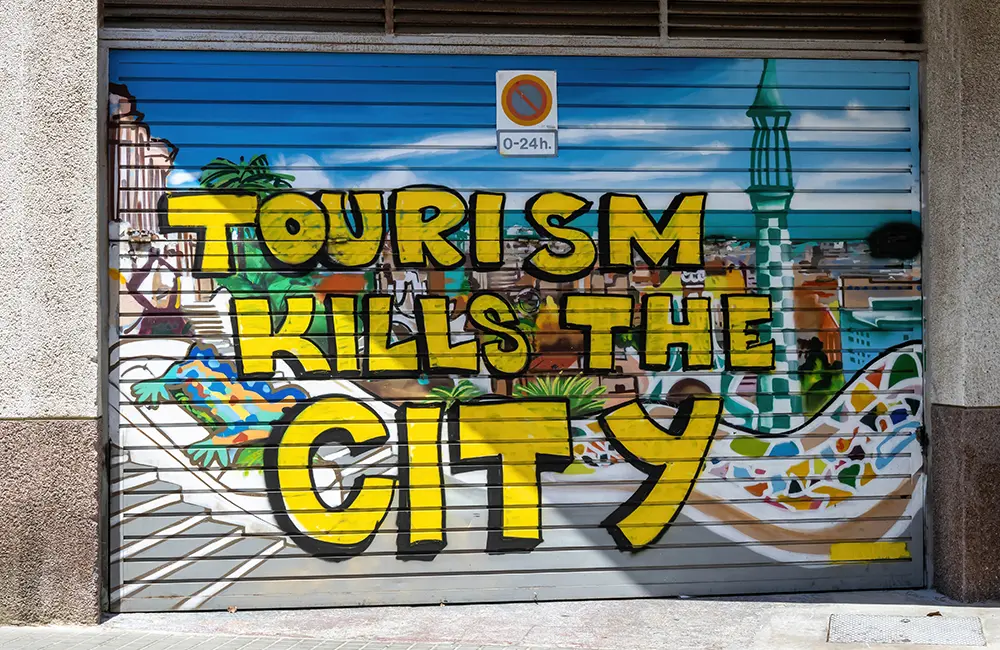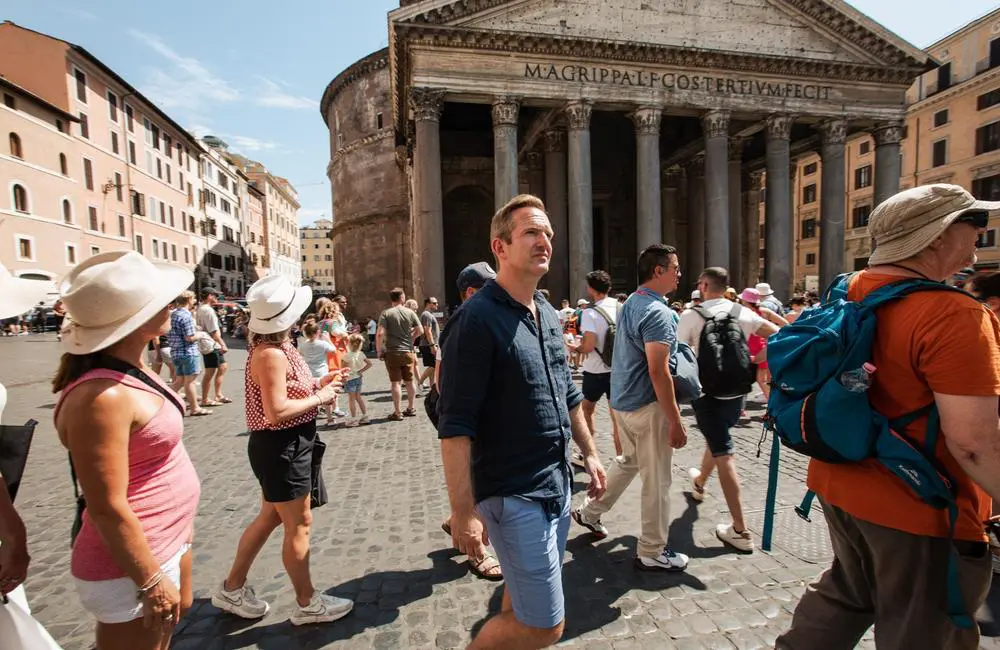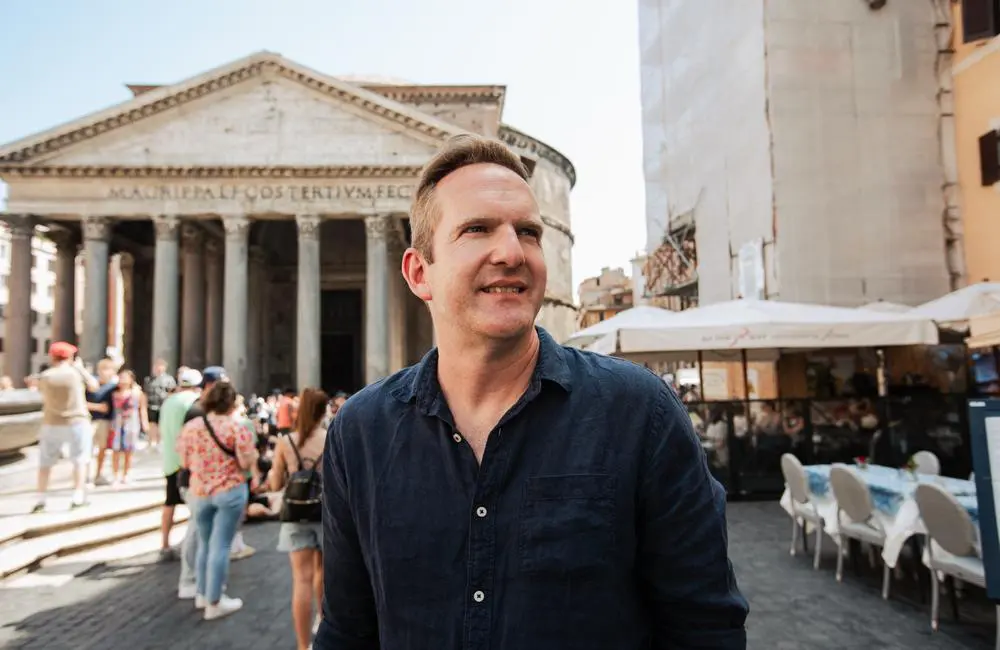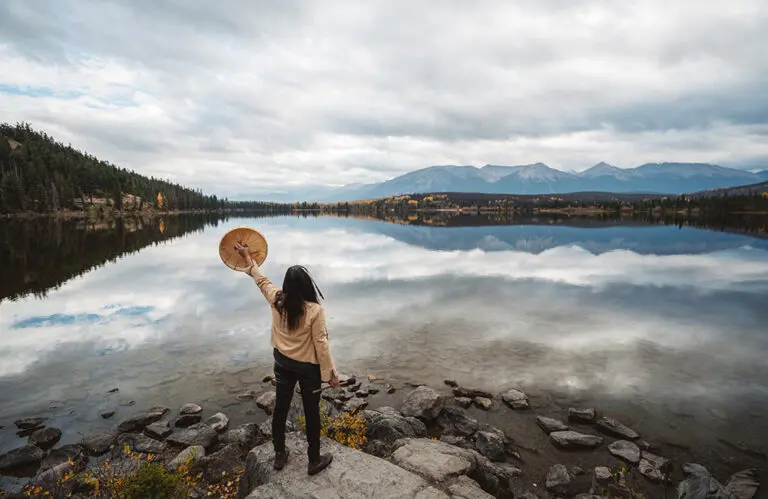As anti-tourism protests erupt again across parts of Europe this week from Barcelona to the Canary Islands locals are once again pushing back against the pressures of overtourism. In this timely op-ed, Intrepid Travel CEO James Thornton writes that the answer isn’t to stop travelling altogether, but to rethink the way we travel and who it really benefits.
Like many post-lockdown travellers, I visited Rome in the height of summer – crowded, hot, busy and queues everywhere. It was overtourism in action – and I was part of the problem.
Overtourism describes when travellers put undue pressure on a destination, leading to environmental degradation, housing shortages, strained infrastructure, and rising local resentment. It’s a complicated issue, driven by a system where the benefits of tourism are felt by a few, while the negative impacts are shouldered by the many.
So, does that mean we should stop travelling?
Tourism is one of the world’s most important industries, contributing USD$10.9 trillion to global GDP and supporting 1 in 10 jobs globally. Travel provides employment, drives small business growth, and creates cultural connection and exchange. Done well, it has the power to uplift communities and support sustainable economic development. It can empower minorities, preserve traditions and protect natural environments.
Australians are travelling in record numbers. According to the latest ABS data, Australians embarked on 11.5 million overseas trips in 2024, surpassing pre-pandemic levels. In January 2025 alone, international departures were up 11% on the previous year. Clearly, our appetite to explore isn’t going anywhere.
And it shouldn’t. But how we travel matters.
There’s a fundamental truth that not all tourism is created equal. After two decades working in the travel industry, I’ve come to believe that the real question isn’t whether we should travel, but how we can travel better. Better for the people who live in the places we visit. Better for the environment. Better for the travellers themselves.
Some of the most pressing challenges stem from the ways tourism has traditionally been structured. The all-inclusive resort, the big bus tour, the whirlwind tour of bucket-list destinations. These models were largely built for volume and profit, not for positive impact.
There’s also the question of who benefits. In many places, a significant proportion of tourism revenue doesn’t stay in the country. Studies have shown that in destinations like Bali, more than half of tourist spending can “leak” out of the economy due to foreign ownership. In the Caribbean, it can be as high as 80%. That’s a staggering loss for communities who bear the cost of hosting tourists every day.

Then there’s behaviour. Travel is a privilege. The relationship between a tourist and a host can and should be a two-way exchange of culture, values, ideas and meaningful connection, not one of disdain. So when tourists ignore local customs, disrespect sacred sites or treat destinations as disposable playgrounds, it’s understandable that residents are fed up.
In cities like Barcelona, resentment has reached such levels that slogans like “Tourists Go Home” have been spray-painted across walls. This tension doesn’t emerge out of nowhere. It’s rooted in complex issues like rising cost of living, insufficient infrastructure and lack of housing (often driven by short-term lets) and bad tourist behaviour.
None of this is inevitable. Travel can and should be different. We need to stop thinking about destinations as products and start seeing them as places where people live, work, and raise their families.
Some governments and cities are already leading the way. Amsterdam has taken steps to reduce short-term rentals and regulate the flow of tourists to major sites. Others are investing in campaigns to educate tourists on respectful behaviour – basic things like water usage, noise levels, and littering – so that locals and visitors can coexist more harmoniously.
As an industry, we also have a responsibility to do better. We need to work with local communities to develop tourism in a way that serves their needs and aspirations. We need to promote lesser-known destinations, pay fair wages, support locally owned businesses and be mindful of our footprint.
None of this is about perfection. It’s about progress.

I’m not over tourism. But I am over tourism that ignores how many visitors a destination can comfortably welcome. I am over extractive models of tourism that benefit a few shareholders while inconveniencing, ignoring or even impoverishing others.
I am not over tourism that reduces inequalities or brings people together during divisive times.
I’m not over tourism that pays fair wages, lifts communities up, protects culture and nature and creates benefits for all stakeholders.
And, I’m certainly not over the endless potential tourism has to create positive change through the joy of travel.
To keep that magic alive, we need to be more thoughtful about how we move through the world. Let’s stop chasing the same few overrun landmarks and start discovering what else is out there. Let’s support local economies. Let’s be good guests.
Because if tourism is to survive – and thrive – it has to benefit the many, not the few.
James Thornton is the CEO of the certified B Corp company Intrepid Travel and a passionate advocate for sustainable and purpose-led tourism. With over two decades at Intrepid, he’s helping shape a more responsible future for travel. Follow James on LinkedIn.







